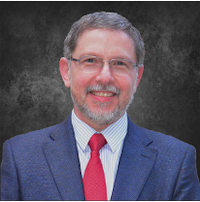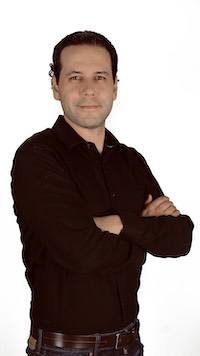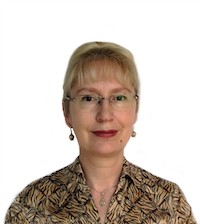Education has been, for centuries, the quintessence of human progress. Higher Education (HE), once reserved for privileged sectors of the society, is now easily available for hundreds of millions of people coming from very different social and economical environments. According to OECD statistics, an average of 44,5% of the 25 to 34 year-old population has finished some type of tertiary education. This is 100% more people than twenty years ago. Besides, the so-called Industry 4.0, is demanding new professional profiles focused on skills that are not included in most universities curricula. Finally, Digital Transformation is stressing the system with a myriad of additional requirements. These three factors combine in what might be called a perfect storm that should be first acknowledged and, later on, properly addressed for the sake of our future as a civilized and modern society.
 Director of the Center for Educational Research and Innovation at the Universidad Tecnológica Nacional (UTN) in Argentina. President of the Argentinean Section of the International Society for Engineering Pedagogy (IGIP). Member of the Institute of Engineering Education (National Academy of Engineering). Associate Director at InnovaHiEd Institute. Research Professor at the University of New Mexico. Former President of the International Federation of Engineering Societies (IFEES). Former Dean of Engineering at the Universidad de Palermo, Argentina. Awarded as “Distinguished Educator” by the IOEM, “Honorary Professor” by the Universidad Ricardo Palma in Lima, Peru, and International Engineering Educator Honoris Causa by IGIP (Austria). Contributed to the National Universities Network as a member of its Administrating Committee and worked as consultant for the National Communication Secretary and National Education Ministry in projects for distance learning and reducing the digital divide. Taught at the university level for over thirty-five years in electronics, computing, multimedia, and learning technologies.
Director of the Center for Educational Research and Innovation at the Universidad Tecnológica Nacional (UTN) in Argentina. President of the Argentinean Section of the International Society for Engineering Pedagogy (IGIP). Member of the Institute of Engineering Education (National Academy of Engineering). Associate Director at InnovaHiEd Institute. Research Professor at the University of New Mexico. Former President of the International Federation of Engineering Societies (IFEES). Former Dean of Engineering at the Universidad de Palermo, Argentina. Awarded as “Distinguished Educator” by the IOEM, “Honorary Professor” by the Universidad Ricardo Palma in Lima, Peru, and International Engineering Educator Honoris Causa by IGIP (Austria). Contributed to the National Universities Network as a member of its Administrating Committee and worked as consultant for the National Communication Secretary and National Education Ministry in projects for distance learning and reducing the digital divide. Taught at the university level for over thirty-five years in electronics, computing, multimedia, and learning technologies.
The current decade will bring several challenges for humanity at large. Against all odds, the changes began from the first months of the decade with a pandemic that has changed the way of working and studying. From environmental challenges, to energy supply, continuous growth of the worldwide population, new changes will follow with the flag of the fourth industrial revolution.
Major trends of technological progress always create concerns about the future of human labor and the possibility of substitution of the human factor by machines and robots. In this sense, the loss of millions of jobs due to automation or the adoption of artificial intelligence, even in everyday jobs is latent.
It is important to find new ways for practical training of professionals through job-related re-skilling and up-skilling programs so as to help people to get familiar with new technologies and become more competitive in the labor market. Solutions from micro-learning in the form of webinars, and certification oriented courses from MOOC platforms, will shape the teaching and learning process.
How is education prepared for this? And what are some of the driving forces that will make education change?. The spark is already lit.
We will review several initiatives from leaders worldwide, and will try to give some light on how MOOCs fit on the next decade's landscape.
 Rocael Hernández Rizzardini received the Ph.D. degree in Computer Science from the Graz University of Technology, Austria. Currently, he is the Director of the Von Neumann Institute and Director of the GES Department at Galileo University, Guatemala.
Rocael Hernández Rizzardini received the Ph.D. degree in Computer Science from the Graz University of Technology, Austria. Currently, he is the Director of the Von Neumann Institute and Director of the GES Department at Galileo University, Guatemala.
Rocael is an academic and scientific researcher in computer science, interoperability of systems, web technologies and virtual education. He has worked as a consultant and director of international Digital Learning and Technological projects, with extensive experience in projects in various countries in Latin America, the United States and Europe. Professor of the Master in Management and Production of Digital Education at Galileo University.
He is leading the Galileo University project at edX.org, named GalileoX. Rocael has led the production of more than 80 successful MOOCs with more than 850,000 students enrolled in the different cohorts. He is an active participant in the MOOC movement with several publications and conferences organizations. With his valuable networking, Rocael is helping to re-configuring the higher education environment with innovative modular solutions using the microcredits model as edX MicroMasters or edX Professional Certificates alongside with innovative solutions for Higher-Education Digital Transformation.
Digitalization is changing almost all areas of our lives, including university teaching and learning. This is nothing new at all. What is exciting, however, is the form and diversity of this change. Each scientific area is facing its own challenges, but there are also very individual opportunities for innovation through and with digitalization in every field. In this talk, Dr. May will take a look at engineering education and its specific innovations in terms of Cross Reality technology for teaching. Cross Reality technologies, understood here as a collective term for all digitally created or supported realities in the sense of Augmented Reality (AR), Virtual Reality (VR), and Mixed or Merged Reality (MR), offer special innovation potential for engineering science teaching. This is especially true in the field of teaching and learning in the laboratory, which has been an integral and essential part of every engineering science course for decades. In his talk, Dr. May will take a look at the innovative potential of augmented labs, remote labs, and fully virtual labs in engineering education. Especially in times like these, in which physical presence and social contacts in educational labs are heavily limited, these types of labs offer great opportunities, and sometimes even the only way to gain experiential experiences. However, examples from practice show that face-to-face teaching can benefit from such developments and innovations, too. It should not be a clash of different realities, but rather a mutually supportive and joint process in the interest of better teaching and learning practice as a whole. In this way, Cross Reality will change university teaching for the better, not only in the engineering sciences.
 Dr. May is an Assistant Professor in the Engineering Education Transformations Institute. He researches online and intercultural engineering education. His primary research focus lies on the development, introduction, practical use, and educational value of online laboratories (remote, virtual, and cross-reality) and online experimentation in engineering instruction. In his work, he focuses on developing broader educational strategies for the design and use of online engineering equipment, putting these into practice and provide the evidence base for further development efforts. Moreover, Dr. May is developing instructional concepts to bring students into international study contexts so that they can experience intercultural collaboration and develop respective competences. Dr. May is Vice President of the International Association of Online Engineering (IAOE), which is an international non-profit organization to encourage the wider development, distribution, and application of Online Engineering (OE) technologies and its influence on society. Furthermore, he serves as Editor-in-Chief for the International Journal of Emerging Technologies in Learning (iJET) intending to promote the interdisciplinary discussion of engineers, educators, and engineering education researchers around technology, instruction, and research. Dr. May has organized several international conferences in the Engineering Education Research field.
Dr. May is an Assistant Professor in the Engineering Education Transformations Institute. He researches online and intercultural engineering education. His primary research focus lies on the development, introduction, practical use, and educational value of online laboratories (remote, virtual, and cross-reality) and online experimentation in engineering instruction. In his work, he focuses on developing broader educational strategies for the design and use of online engineering equipment, putting these into practice and provide the evidence base for further development efforts. Moreover, Dr. May is developing instructional concepts to bring students into international study contexts so that they can experience intercultural collaboration and develop respective competences. Dr. May is Vice President of the International Association of Online Engineering (IAOE), which is an international non-profit organization to encourage the wider development, distribution, and application of Online Engineering (OE) technologies and its influence on society. Furthermore, he serves as Editor-in-Chief for the International Journal of Emerging Technologies in Learning (iJET) intending to promote the interdisciplinary discussion of engineers, educators, and engineering education researchers around technology, instruction, and research. Dr. May has organized several international conferences in the Engineering Education Research field.
Education 4.0 requires new technological and technical solutions to be integrated into the learning process. Digital Twins technology can become one of these solutions. A Digital Twin is a virtual model of a real physical object which fully describes this object by mirroring all its features and enabling the digital representation of its past, current, and future state and behavior. Unlike other virtual models, a digital twin is a dynamically updated model which is working in parallel to its physical twin, the real object. Digital Twins technology was developed for solving engineering tasks in the aerospace industry. Now it is used in many other areas; in particular, it helps to optimize production and business processes. At the same time, the concept of a Digital Twin has a huge potential for Education 4.0. Applying Digital Twin information technology to the area of education enables creation of the next generation learning tools. The purpose of this presentation is to show both the benefits, which the Digital Twin concept implementation can bring to Education 4.0, and the ways of this implementation.
 Dr. Yevgeniya Sulema is an Associated Professor and a Vice-Dean at the School of Applied Mathematics of the National Technical University of Ukraine “Igor Sikorsky Kyiv Polytechnic Institute”. She received her Ph.D. degree in Computer Engineering in 1999. Her research interests include digital twins, mulsemedia, and immersive technologies. As a senior researcher, she leads the Research Laboratory of Multimedia, Mulsemedia, and Immersive Technologies at her university. Dr. Sulema is an author of more than 150 scientific publications. She participates in numerous European and national research projects. Dr. Sulema is a member of the International Institute of Informatics and Systemics. She is a member of program committees at several international conferences. Dr. Sulema is also active in the e-learning and Education 4.0 areas. She teaches the course on Multimedia, Mulsemedia, Immersive Technologies and the course on Digital Signal and Image Processing to Master program students at her university. She also gave lectures to students at several European universities as a guest lecturer.
Dr. Yevgeniya Sulema is an Associated Professor and a Vice-Dean at the School of Applied Mathematics of the National Technical University of Ukraine “Igor Sikorsky Kyiv Polytechnic Institute”. She received her Ph.D. degree in Computer Engineering in 1999. Her research interests include digital twins, mulsemedia, and immersive technologies. As a senior researcher, she leads the Research Laboratory of Multimedia, Mulsemedia, and Immersive Technologies at her university. Dr. Sulema is an author of more than 150 scientific publications. She participates in numerous European and national research projects. Dr. Sulema is a member of the International Institute of Informatics and Systemics. She is a member of program committees at several international conferences. Dr. Sulema is also active in the e-learning and Education 4.0 areas. She teaches the course on Multimedia, Mulsemedia, Immersive Technologies and the course on Digital Signal and Image Processing to Master program students at her university. She also gave lectures to students at several European universities as a guest lecturer.
| 23 Apr 2020 | Submission of structured abstracts for full and short papers; Submission of proposals for special sessions |
| 30 Apr 2020 | Invitation to submit a full paper or short paper |
| 31 May 2020 | Submission deadline for complete full and short papers and all other submis-sions (Special sessions papers; Work in progress; Demos; Poster; Tutorials; Workshops) |
| 22 Jun 2020 | Notification of acceptance |
| 20 Jul 2020 | Camera-ready due and author registration |
| 14 Oct 2020 | Conference Opening |